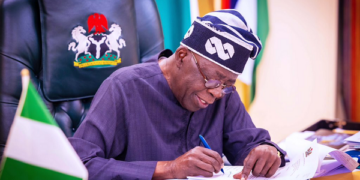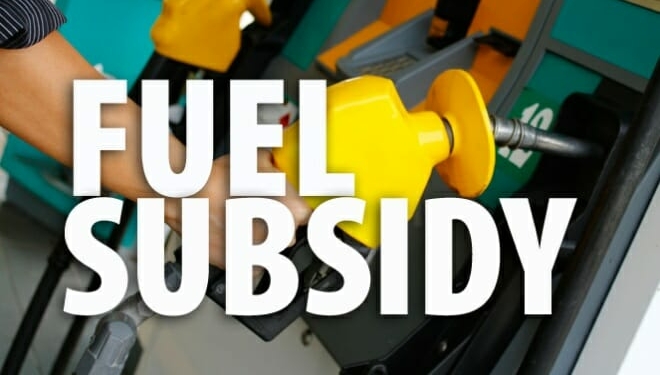As the push for total deregulation of the downstream oil sector grows, Nigerians have been warned that if fuel subsidies are removed, they may have to pay as much as N800/litre.
WITHIN NIGERIA recalls oil marketers predicted this even as fuel scarcity bites harder and lasts longer than expected.
The federal government recently announced, through Minister of Finance, Budget, and National Planning Zainab Ahmed, that it would gradually withdraw petrol subsidies as budgetary allocation for subsidies expires in June.
The announcement comes after several calls for fuel subsidies to be eliminated in order to attract more investment to the country’s downstream oil sector.
Industry experts have consistently pushed for this course, claiming that the high cost of petrol subsidies was a burden on the Nigerian National Petroleum Company Limited (NNPCL) and that the exercise benefited the wealthy rather than the general public.
As the sole importer of petrol into Nigeria, the subsidy regime has imposed burdens on the NNPCL, prolonging the price and other factors in the downstream oil sector.
WITHIN NIGERIA understands that in response to the push, oil companies have urged the federal government to implement a friendly subsidy removal regime.
While it may be prudent to remove the subsidy, Mohammed Shuaibu, Secretary of the Independent Petroleum Marketers Association of Nigeria (IPMAN) Abuja-Suleja, told Punch that once the commodity is no longer subsidized, the price of petrol may exceed N800/litre.
Before implementing the decision, he believes the federal government should ensure that all necessary measures and infrastructure are in place to ensure a less stressful subsidy removal regime.
Shuaibu advanced that;
If the government fails to take the appropriate measures, and they say they want to remove fuel subsidy, the situation will be worse than this, the masses will suffer. How can you remove the subsidy if you don’t have this product (petrol)?
If the government removes subsidy, where is the product? If you are removing the subsidy, maybe by that time, the way diesel is sold at between N800 – N900/litre, we could be buying petrol at N800/litre, if not more than that.
This is because the product will be scarce, even from the government cycle. So the government should tell Nigerians the truth about this fuel supply crisis. It is not a problem caused by marketers.
The IPMAN official submitted that the downstream sector was not structured for adequate competition, adding that this could also pose challenges when the subsidy was eventually removed.
He further explained that oil marketers were ready to sell, and when marketers got products a few weeks ago, the queues disappeared.
Shuaibu pointed out that;
But as it is today, you have black marketers everywhere selling with jerrycans and you will ask, where are the security agencies and the regulators?
By tomorrow they will claim that it is the fault of the marketers. How? We are businessmen and every businessman wants to make a profit. You know the law of supply and demand. When the product is scarce, prices will rise, and vice versa.
By the time you are removing subsidy, you should know that the market is not properly opened and there is no competition. They always tell you about Dangote Refinery. We must understand that Dangote is a privately owned company.
The pipelines of that facility were not even designed to run in any Nigerian state, rather it was designed to run to neighbouring countries, and maybe that one in Lekki there, that is all.
So, more or less, that refinery might still exploit us, because when there is no competition, the only supplier calls the shots. For had it been that as Dangote is producing in Lagos, another person is producing in Warri, while one refinery is pumping in Abuja, then there will be competition.
We can see, for instance, the competition in the telecommunications sector today. But the government will continue to deceive us that Dangote Refinery will come on stream when we know that it cannot really solve the problem.
They should not continue to be singing it as if it is what will solve our fuel supply problems.










Discussion about this post